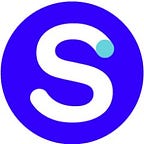Skyllz platform for employees’ assessment and branding
“Great things in business are never done by one person. They’re done by a team of people.” — Steve Jobs, chairman, CEO, and co-founder of Apple Inc.
Although the working scenario has changed a lot in the last decades, with a higher rotation of employees, in average every two years, the retention of talents is still key to build solid and outstanding teams.
It is important to create the right level of engagement, communicate clearly the company culture, provide means of cross-functional cooperation, and motivate with a meaningful vision. According to a survey conducted by Glassdoor® among 750 hiring decision makers from U.K. and U.S., at the beginning of this year, 35% of them predicted a growth in employees’ resignations over the next 12 months. In the same study, around 45% of recruiters interviewed, observe that the compensation is the main reason for employees to leave, followed by career advancement opportunities, benefits, and location.
As observed in a Willis Towers Watson’s research more than a half of all organizations globally find hard to retain some of their most valued talents. In fact, only 42% of employees consider their employer succeeds in retaining good employees.
Consequently, also new hires leave in the really first months.
The costs of a high employees’ turnover are frequently underestimated but can be relevant. Just consider how long it takes to set up a new recruitment process, the costs involved in training and the negative impact of frequent staff changes. Although recruiting people coming from outside the organization can bring a fresh perspective and new ideas, it is frequently more risky and expensive than promoting internal employees.
Why is it so important to know very well your own employees?
As we have just seen, a frequent employees’ turnover results in a poor performance and costly processes of replacement. Motivation and engagement can only be achieved through a deep knowledge of an organization’s staff strength points and areas for improvement.
From the professional point of view, any profile consists of a mix of the following aspects:
- hard skills, as a set of specific measurable abilities
- soft skills, defining the way capabilities are applied
- attitude toward a learning process and advancement
The market offers many software solutions for Performance Management, reducing the paperwork and helping to track employees’ performances.
However, in big organizations, with a global staff, it is not immediate to identify the key set of talents that make any professional unique.
Any individual has specific skills an organization can benefit from. Being able to spot them quickly has both the effect of making the employee feeling duly rewarded and the result of setting up perfectly matched teams.
Blockchain, a more human-centered approach
“I have always believed that technology should do the hard work — discovery, organization, communication — so users can do what makes them happiest: living and loving, not messing with annoying computers! That means making our products work together seamlessly.” — Larry Page, co-founder of Google
The advent of decentralized networks has brought a new wave of fresh human-centered solutions and groundbreaking business models.
Skyllz is an open-source blockchain-based protocol to build up a trustworthy and portable reputation based on skills validation, tracking, and boosting. The process takes place in an unbiased way, thanks to a community of independent raters. Only positive achievements are registered on the blockchain, in order to build an ecosystem based on individuals’ strength points and outstanding talents.
Finding a needle in the haystack
Managing global organizations can be challenging when looking for specific profiles, for advancements, promotions, reorganizations or relocations.
Since the blockchain offers a borderless solution, it makes easier to find the right set of skills to take part in a specific project. Building a reputation-based decentralized network also facilitates connections among employees with the same interests, and helps HR departments bridging gaps when implementing training programs, on the base of specific lacks/requests.
The diversity of teams is guaranteed since talents are defined by the mere tracking of achievements.
Some examples:
- Imagine you are a Manager building from scratch a new investigation group, you need the top tech profiles in your company, in the shortest time as possible, as the project will last for two years, and there is no time to train external people about the company culture. A system based on trustworthy skills will help you find immediately the ideal candidate inside the organization, no matter where he/she is based. For the employee will be a new rewarding experience, to be added to his/her online reputation.
- Imagine you are a Training Manager and you need to spend your budget accurately on specific lacking skills. Having a quick picture of the areas of improvement will help you invest wisely in training activities.
- Imagine you are the Director of a new overseas branch, and you need experienced people, yet, some of them do not have the willingness/right mindset to relocate abroad. With a decentralized network, you will discover those employees who actually do search for an overseas experience.
This system brings advantages for the employees, who can advance/move within the organization thanks to a meritocratic process that takes into account their overall profile, at the same that it makes faster for Managers to find the most qualified talents inside the organization itself, provoking more motivated team members and fewer expenses for external recruiting.
Join Talent Branding revolution, join Skyllz!
P.S: for more info, join our community!
Telegram// https://t.me/Skyllz
